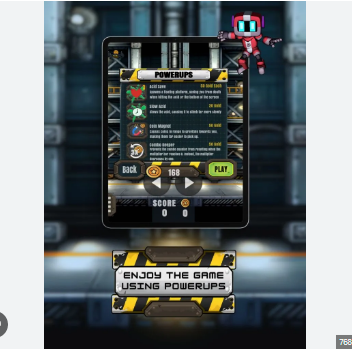
Creative Minds in Motion The Surprising Cognitive Benefits of Robot Games
In today’s tech-driven world, fostering creativity and strategic thinking is more important than ever. For professionals aiming to nurture these skills, robot games offer an intriguing solution. These interactive experiences are not just for entertainment; they are powerful tools that enhance cognitive development in unique ways. This blog explores how robot games can unlock creativity and strategy, making them a valuable asset for anyone looking to boost their mental prowess.
Sparking Imagination Through Play
Robot games serve as a playground for imagination. By engaging with various scenarios and problem-solving tasks, players are encouraged to think outside the box. These games require participants to envision multiple outcomes and potential solutions, thereby stretching their creative muscles. This ability to imagine diverse possibilities is not only enjoyable but also translates into real-world problem-solving skills.
Building Strategic Thinking
Strategy is at the heart of most robot games. Players must analyze situations, anticipate opponents’ moves, and plan their actions accordingly. This constant practice helps develop critical thinking skills and enhances the ability to make informed decisions quickly. Over time, these strategic exercises can lead to improved decision-making abilities outside the gaming realm, proving beneficial in both personal and professional settings.
Enhancing Problem-Solving Abilities
Robot games often present players with challenges that require innovative solutions. These scenarios mimic real-life problems, encouraging players to apply logic and reasoning to overcome obstacles. The trial-and-error nature of these games promotes resilience and persistence, essential traits for effective problem-solving. By navigating complex situations in a controlled environment, players build confidence in their ability to tackle challenges head-on.
Encouraging Collaboration and Teamwork
Many robot games are designed to be played in teams, fostering a collaborative spirit among participants. Working together towards a common goal encourages communication and cooperation. These social interactions are crucial for developing teamwork skills, which are invaluable in professional environments. Through shared experiences, players learn to trust and rely on one another, strengthening their collaborative abilities.
Adapting to Technological Advances
Incorporating robot games into cognitive development strategies aligns with the increasing reliance on technology in our daily lives. By engaging with technology in a playful and educational manner, individuals can stay abreast of technological advances and better adapt to changes in their professional and personal environments. This adaptability is a key component of success in today’s fast-paced world.
In conclusion, robot games offer more than just fun; they are a gateway to unlocking creativity and strategic thinking. By incorporating these games into cognitive development practices, individuals can enhance their problem-solving abilities, strategic thinking, and adaptability to technology. Whether you’re a professional seeking to improve your skills or someone looking to boost your mental agility, robot games are a valuable addition to your cognitive toolkit.